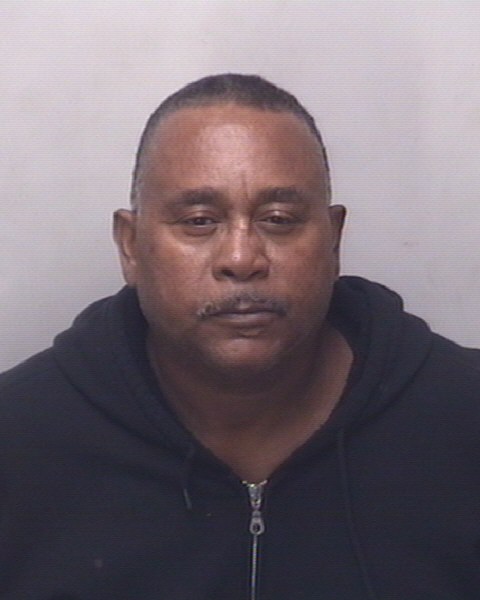Newspapers, county government could face off for public notice money
Published 12:05 am Thursday, April 27, 2017
By Josh Bergeron
josh.bergeron@salisburypost.com
SALISBURY — Dueling bills in the state legislature could affect the way you view an array of public notices, such as tax liens.
Newspapers and local government websites would compete for dollars for public notices under Senate Bill 343, which passed the state Senate on Tuesday. That measure is opposed by the N.C. Press Association, a collection of newspapers and online news outlets. The association has pushed for a “compromise bill” — House Bill 572 — which was scheduled for discussion late Wednesday night in the N.C. General Assembly.
S.B. 343, which would allow county governments to charge a fee to publish public notices on their websites, passed the Senate on Tuesday by a 30-19 count. Examples of such notices include foreclosure sales and public meetings. The bill sets specific fees for publication online. It would allow public notices to be published on local government websites instead of in newspapers.
The bill received support from both of Rowan County’s state senators — Andrew Brock of Mocksville and Tom McInnis of Rockingham. Brock was also a co-sponsor of the bill. During the 2015-16 session, Brock was a primary sponsor of a similar measure.
When asked about his support for the change, Brock, a Republican who represents the 34th Senate District, says not everyone subscribes to a newspaper, some publications charge too much for public notices and some people don’t read newspapers at all.
“We used to have a town crier that would stand on the corner and shout public notices,” Brock said. “There wasn’t much outcry when the newspapers put him out of business.”
He equated current law, which requires publication of specific notices in newspapers, to “crony capitalism.”
“People don’t like forced government mandates,” he said.
Examples of notices required to be published in a newspaper include tax liens, the creation of a water and sewer district, and property revaluation.
Brock said there should not be a charge for public notices. The bill he’s co-sponsoring, however, would allow charges of $450 for foreclosure notices and $100 for other notices published by nongovernment entities. Counties would be able to publish their own public notices on their website for free. Cities and towns could choose to publish public notices on county government websites for a fee, according to the proposed law.
Money received by county governments from public notices would be distributed as follows: 10 percent for administrative costs, 40 percent to the county’s general fund and 50 percent for teacher supplements.
If S.B. 343 becomes law, it wouldn’t automatically affect all cities and counties. First, local governments would need to pass an ordinance allowing for a choice.
The N.C. Press Association has rallied against S.B. 343 and introduced its compromise bill. If Sen. Trudy Wade — a Republican from Guilford County and the primary sponsor of S.B. 343 — is interested in increasing access to public notices, she would support the compromise, said Press Association Executive Director Phil Lucey.
“Sen. Wade and the counties keep repeating that this is about increasing access to public notice,” Lucey said. “Only H.B. 572 would truly increase access.”
The compromise bill would require newspapers to publish notices for free on the outlet’s website, which is also a requirement in the Senate bill. Notices would also be published on a statewide website — ncnotices.com — under the compromise bill.
“Compare that to burying a public notice on an unknown government website and ask which way is more accessible to the public,” Lucey said. “With the combined audience in print and digital, nobody can reach the public like the local newspaper can, certainly not a county website.”
At 9 p.m. Wednesday, the state House had put the compromise bill on its calendar for discussion but had not voted on the measure.
The Salisbury Post’s website saw nearly four times the number of unique visitors as Rowan County’s website during the most recent 30-day period of statistics available for both. There’s an even wider divide in total views. In March, 232,441 unique visitors to salisburypost.com resulted in 1.5 million page views. County government’s website saw 61,171 unique visitors create 315,978 page views during the most recent 30-day period.
With more than half of its views, the most popular page for county government was the inmate list. Randy Cress, who supervises the county’s Information System Department, said the statistics may be inflated by bots that continuously visit the inmate list for mugshots to sell or publish in other locations.
Numbers for the Salisbury Post don’t include the print edition. A recent market study conducted by the newspaper found that 75.6 percent of adults in the Post’s market regularly read the print edition, website or both.
Salisbury Post Publisher Greg Anderson said he would prefer to see all legislators take a “serious look” at the compromise bill.
“That bill passed 115 to 4 last year in the House but didn’t make it through the Senate,” Anderson said. “Hopefully, we can work this out so public notices can continue to get seen by the public.”
Unlike S.B. 343, the compromise bill has languished in the House Rules Committee since its introduction earlier this month.
During discussion about S.B. 343 on Tuesday, some senators said the loss of advertising revenue would harm small newspapers, potentially shuttering some.
For his part, McInnis, a Republican who represents the 25th Senate District, says something needs to change about the way public notices are published, but he expressed a willingness to consider different viewpoints.
In a floor speech, Sen. Rick Horner, a Republican who represents District 11, said argument against S.B. 343 aren’t about the financial health of newspapers. Rather, the argument is about ensuring the largest possible audience
“It’s about doing what’s right for the public,” Horner said.
He also talked about the value of small-town newspapers.
“I might say that these small-town papers report on things like the Cooper’s Fire Department and the American Legion,” he said. “This is the fabric of eastern North Carolina and the rest of our state. … They do honor rolls. You won’t see this in big-city papers or on the county website.”
Contact reporter Josh Bergeron at 704-797-4246.





